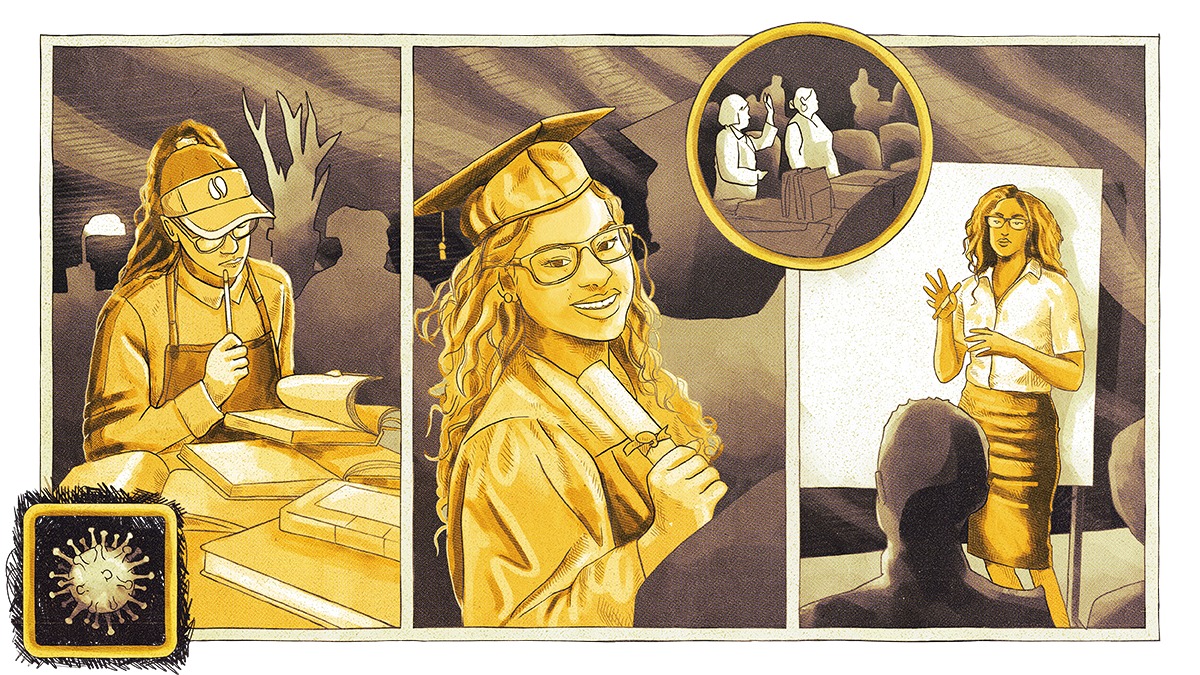What’s Next for Postsecondary Education and Colorado’s Workforce?

Where we’ve been
From 2019 to 2020 the Bell Policy Center convened experts and stakeholders from Colorado’s education and workforce systems. This group, named the Future of Work and Learning Advisory Council, was tasked with identifying policy recommendations for reducing equity barriers that students face when completing education credentials and entering an industry of their choice. Halfway through the advisory council’s term, the COVID-19 pandemic began.
The pandemic dramatically disrupted both education and workforce systems. It worsened equity barriers in ways that have, at this point, been well-documented. In addition to the inequities created by class and a transition to remote work and learning, a sudden recession forced state budget cuts to one of the few parts of the Colorado budget that is fully at the discretion of lawmakers: higher education.
The pandemic made it riskier and more challenging for people to attend school. Mental health issues among youth skyrocketed. Online learning, while welcome and overdue for many, proved ineffective and challenging for others. Additionally, the pandemic showed that some essential jobs, like care work, are dramatically in need of wage increases. In brief, the pandemic created and highlighted additional challenges beyond those that we were already facing.
Highlights from the 2022 session
Now, after two years of recovery and the infusion of federal funds, the state has been able to restore cuts and make new investments into postsecondary education and workforce systems. Last session, the legislature created several task forces to make recommendations in key issue areas. A significant share of the funds appropriated by the legislature this session for education reflected proposals made from the task force around student success and workforce revitalization. The task force was diverse, and over the course of several months settled on six priorities. Many of these priorities were reflected in bills passed this session.
One of the most notable investments made by the legislature was the $90 million grant program for different regions across the state to fund local talent pipeline development needs. Additionally, the state is convening stakeholders to develop stackable credential pathway programs to help students gain industry-relevant credentials, a long-time priority for the Bell Policy Center.
During this session, Colorado lawmakers also:
- Invested in resources to help boost FAFSA and CAFSA completion
- Paid down part of the budget stabilization factor
- Increased funding for postsecondary education institutions
- Advanced the development and expansion of work-based learning opportunities
In summary, during the 2022 legislative session, lawmakers have marshalled unparalleled resources into our education and workforce systems, in large part due to the availability of one-time funds. These legislative actions don’t even account for the additional federal funds received by K-12 schools and state colleges and universities.
What’s next?
The investments made to date are crucial for the state to address longstanding gaps in these systems. However, moving forward it will be essential to continue to invest in our education and workforce systems and ensure that key stakeholders and partners continue to be engaged with throughout the implementation process. We have seen evidence of the need for partnerships between nonprofits, postsecondary education institutions, and businesses through stackable credential pathways in particular. Because the future of work will be more blended, with credentials following students across multiple learning environments, it is essential that diverse partners are convened from the beginning to reduce barriers.
Fighting to make our systems work for adult learners, communities of color, and low-income individuals will ensure that every Coloradan can gain a credential and find work in a field that will pay a thriving wage. Colorado still faces significant funding gaps in K-12 and higher education, as budgetary cuts during the Great Recession decimated our spending — to the point that we have still not completely recovered — and sent Colorado towards the bottom of per-pupil spending by state. COVID-19 also created new issues relating to work and learning, especially for rural communities and communities of color. One-time investments are helpful to catalyze changes, but continual attention to our preexisting challenges around access, affordability, and relevance of credentials, as well as ensuring efficient and equitable implementation, will be necessary to ensure equity in our future work and learning systems.
